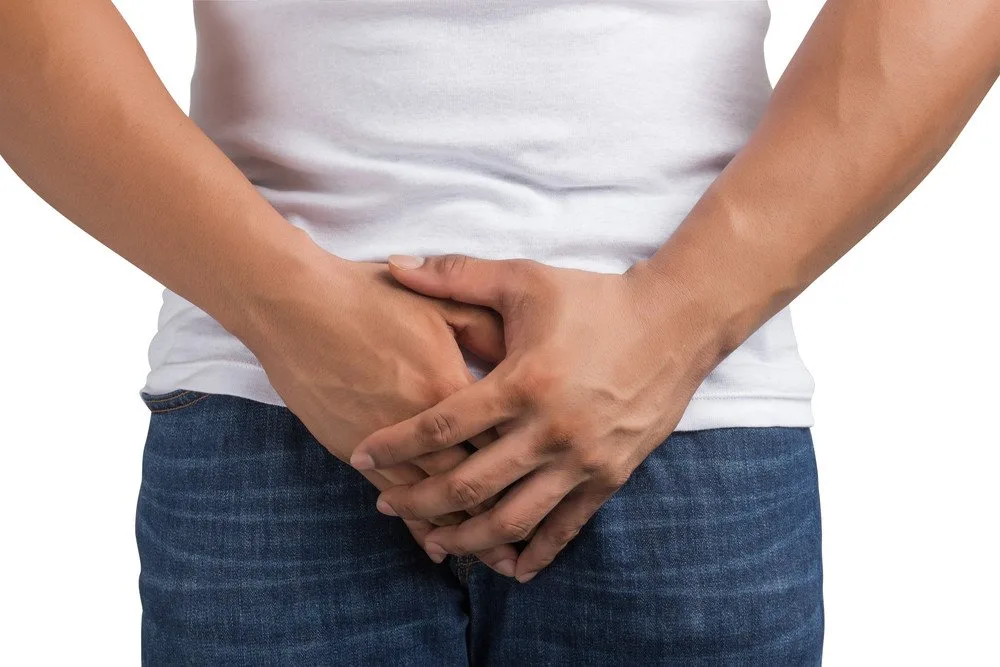Check your balls and save your life. This is the advice from Michele Vanzaghi, a 27-year-old medical doctor who was diagnosed with testicular cancer in 2020. In this opinion editorial, Dr Vanzaghi explains why we need to take testicular cancer seriously.
Testicular cancer is most common among 15 – 35-year-olds
While testicular cancer is a rare form of cancer, it’s still the most common cancer affecting males between the ages of 15 and 35.
Yes! The average age of men diagnosed with testicular cancer is 33.
According to international statistics, approximately 1 in 250 males will develop testicular cancer at some point during their lifetime. The incidence rate of testicular cancer has been increasing in many countries around the world for several decades. The increase is mostly in seminomas. Experts have not been able to find reasons for this, although lately, the rate of increase has slowed.
While this rare cancer does have a high cure rate, it can have severe health repercussions. This is why it is more easily treated in its earlier stages. Testicular self-examination (TSE) is the most effective and important way for men to detect this disease in its early stages.
A young man’s disease
The challenge is that many young men are not aware about testicular cancer, or the changes that can occur in their bodies when they develop this disease. Young teens and young men often do not think of cancer as a disease that could happen to them.
Testicular cancer is a disease of young men. Many times, our invincibility during youth makes us believe that health screening is not important. As a young person who knows the value of an early diagnosis and early treatment, I want to make it my mission to create awareness and comfort in screening for men’s health issues.
The importance of a self check
Testicular self-examination (TSE) only takes a minute to check and can help detect abnormalities. It is essential to be familiar with the look, feel, and shape of your testicles. This will help you notice if there are changes.
If you notice any hard lumps or nodules (smooth rounded masses) or any changes in size, shape or consistency of either testicle, see your doctor as soon as possible
Signs and symptoms of testicular cancer include
- A lump or enlargement in either testicle.
- A feeling of heaviness in the scrotum.
- A dull ache in the abdomen or groin.
- A sudden collection of fluid in the scrotum.
- pain or discomfort in the testicle or the scrotum.
- Enlargement or tenderness of the breasts.
- Back pain.
Check your balls monthly
According to the Cancer Association of South Africa (CANSA), it is significant for men to try to do a TSE (check) every month. This way, you can become familiar with the normal size and shape of your testicles, making it easier to tell if something feels different or abnormal in the future.
Early detection saves lives
My testicular cancer diagnosis initially had massive implications. I was unable to practice medicine in hospital as I was immune compromised and ran the risk of major infection. Now in complete remission, I am very healthy physically. The biggest burden comes in the form of emotional stress from follow-up scans and blood tests. There are also social issues that surround cancer that make living with it challenging at times.
Early detection and screening through awareness campaigns and education is vital. This saved my life, and I would like to help save the lives of many other young men with what I learnt.
About the author

Dr. Michele Vanzaghi
Dr. Michele Vanzaghi is a South African medical doctor who was diagnosed with testicular cancer at the age of 25 years. Since then he has dedicated his time and experience to helping educate the public on testicular cancer. You can read more about his personal journey on Grabbed By The Balls.
Public service message in support of raising awareness for testicular cancer
The Hollard Daredevil Run is one such awareness campaign. Now in its 12th year, this annual event sees thousands of men running 5 km dressed only in purple speedos. This year’s event in South Africa will be held on 30 September and will see men and boys around South Africa running cancer “outta their hoods”. This “run-with-a-difference” that makes a difference challenges stereotypes about male cancers and starts important conversations about prostate and testicular cancer. Follow Daredevil Run on Facebook or visit Daredevil Run for more information.
For more information about testicular cancer and how to do a self-examination, go to https://cansa.org.za/how-to-do-a-testicular-self-examination/.
References:
-
https://cansa.org.za/medical-doctor-diagnosed-with-testicular-cancer-during-lockdown-shares-story/4
-
https://www.betterhealth.vic.gov.au/health/conditionsandtreatments/testicular-self-examination
-
https://pubmed.ncbi.nlm.nih.gov/15917035/
-
https://www.cancer.org/cancer/testicular-cancer/about/key-statistics.html
-
https://www.chesapeakeurology.com/blog/2022/03/24/what-young-men-need-to-know-about-testicular-cancer/#
-
https://cansa.org.za/how-to-do-a-testicular-self-examination/





![women [longevity live]](https://longevitylive.com/wp-content/uploads/2020/01/photo-of-women-walking-down-the-street-1116984-100x100.jpg)









